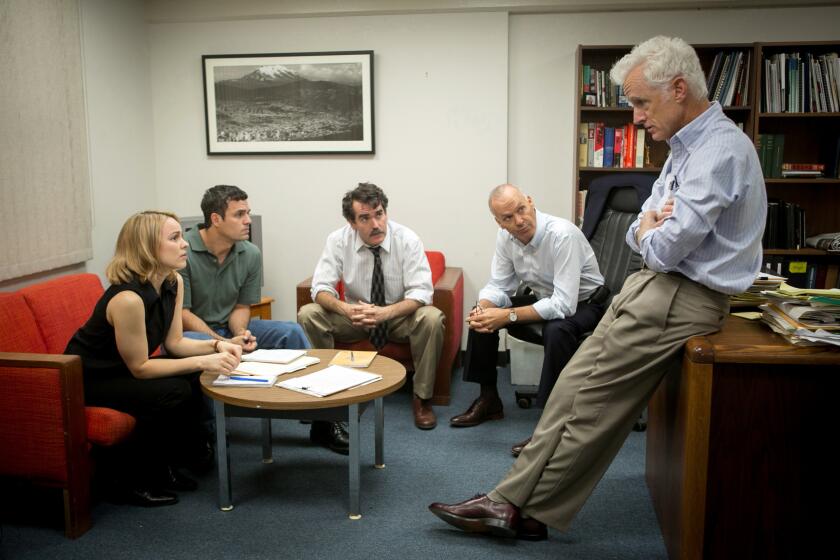Edison fined $30 million for fraud
The state Public Utilities Commission on Thursday levied a $30-million fine -- its largest ever -- against Southern California Edison and ordered the utility to refund more than $81 million to customers, concluding that a seven-year fraud caused substantial harm to consumers and could have diminished worker safety.
Although the fine is a record for the PUC, it is $10 million less than what was ordered in late 2007 by a commission judge. The decision also substantially reduced the judge’s refund order, cutting Edison’s total price tag from the fraud to $146 million from $200 million.
Consumer advocate Mark Toney applauded the decision anyway, calling it “a real victory for consumers.”
“The fact that a commission that is so utility-friendly would impose this kind of a fine on a utility is a real indication of how outrageous their conduct was,” said Toney, executive director of the Utility Reform Network, a San Francisco group that had pushed for a higher penalty.
The unanimous vote puts an end to a scandal that came to light in 2004, a year after Edison received its first whistle-blower letter describing how employees were gaming customer-satisfaction surveys to help the company and managers win bonuses and ratepayer-funded incentives.
Edison’s internal investigations confirmed those allegations and found that managers submitted falsified first aid and injury data to win bonuses for worker safety. At the Edison-run San Onofre Nuclear Generating Station, the probe found that managers suppressed injury reporting by asking employees to treat themselves and by pressuring doctors to alter records or use Steri-Strips in lieu of stitches.
“The severity of SCE’s violations was considerable. . . . Management knew, or should have known, that these violations were occurring,” said Commissioner Rachelle Chong, author of Thursday’s decision. “It took two whistle-blower letters to finally get the attention of senior management to successfully investigate these inappropriate practices.”
Those and other considerations “justify a significant fine in this case,” Chong said.
Edison, a subsidiary of Rosemead-based Edison International, said it “agrees with the California Public Utilities Commission that the reporting inaccuracies the utility discovered, investigated and self-reported to regulators represented a very serious breach of SCE’s responsibility.”
Spokesman Gil Alexander said Edison had no further comment. The company has 30 days to seek a rehearing, but it is limited to asserting legal error, PUC spokeswoman Terrie Prosper said.
Edison had argued that the penalties should be limited because it quickly and voluntarily reported the problems, conducted extensive investigations and offered to return more money than it thought was warranted. Edison offered to pay a $2.5-million fine and refund more than $49 million.
Chong and others praised Edison’s cooperation in the case, adding that the fine would have been substantially higher -- as much as $102 million -- if the utility had not provided that assistance.
The fraud case grew out of a commission program to reward utilities with ratepayer-funded incentives for good performance in customer service, employee safety and other areas -- and to penalize them for poor performance.
Edison won the maximum rewards for customer satisfaction from 1997 through 2003 based on high scores on surveys conducted by an outside firm. Those results, however, were rigged by planners under intense pressure to get good scores despite being chronically understaffed amid a surging workload.
To help the company and managers win the bonuses anyway, employees were encouraged by managers and others to erase or change the phone numbers of unhappy customers to prevent customer satisfaction surveyors from reaching them. At times, planners substituted the phone numbers of relatives or of customers who could be counted on to give glowing assessments of the company’s work.
Under Thursday’s decision, Edison must pay the $30-million fine into the state’s general fund within 30 days. In addition, the company must submit a plan within 30 days that describes whether the $81 million in refunds will be given in the form of bill credits for the utility’s 4.8 million customers or be taken out of future rates.
Also Thursday, the PUC approved what it called a groundbreaking energy-efficiency strategic plan covering 2009 through 2020. The plan lays out goals that would: by 2020, make all new residential construction “zero net energy,” where electricity produced on site or by nearby renewable sources meets the entire energy needs of the home; by 2030, make all new commercial construction zero net energy; by 2020, make all eligible low-income homes energy efficient; and make efficiency gains in heating, ventilation and air-conditioning systems.
--
elizabeth.douglass@latimes.com






